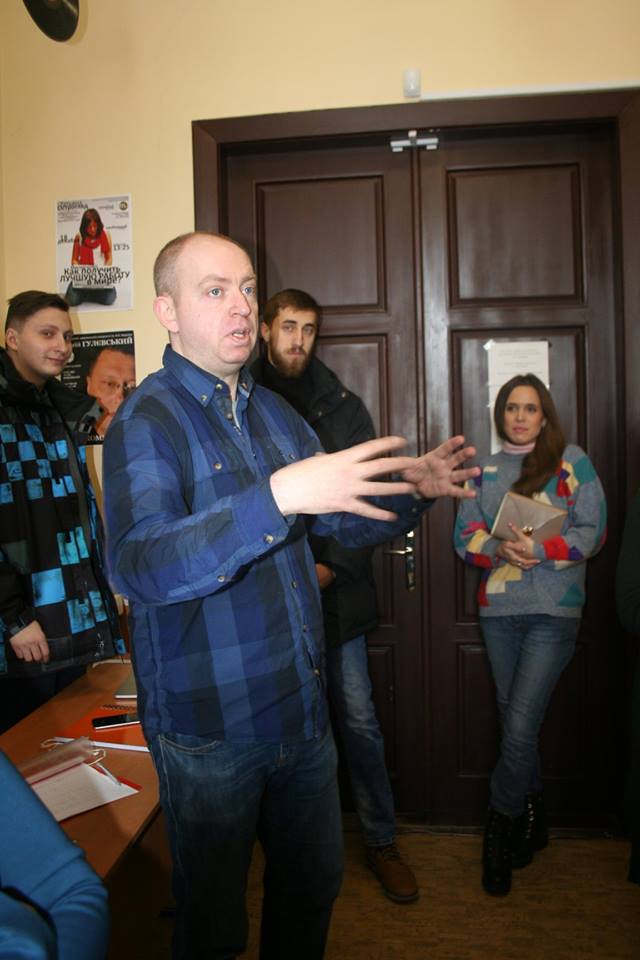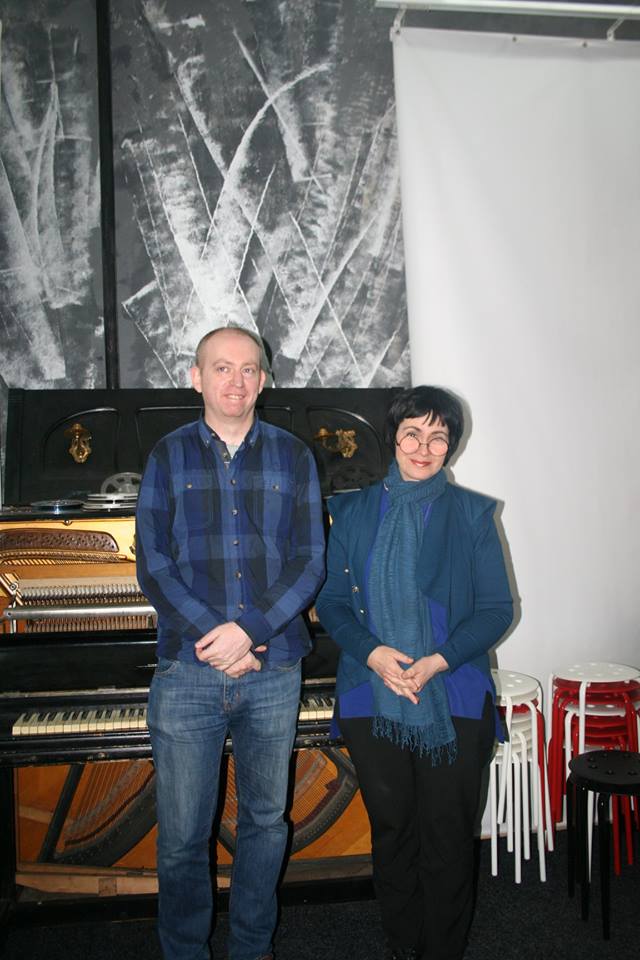The faculty at the New Political Communication Unit have put together a short list of books we enjoyed in 2017, and point to a few we are looking forward to digesting in 2018. Take a look below.
Collins, Philip (2017). When They Go Low, We Go High: Speeches that shape the world - and why we need them. 4th Estate. 426pp
When They Go Low, We Go High presents a detailed analysis of the best public speeches that, to the judgment of the author, have been made in history. However, the book does much more than being an anthology. It presents the argument that rhetoric and democracy are intertwined. In current times, when anti-politics is the most potent political idea, the author makes a very good case to show that we need to attend to the integrity of the way we speak about politics and that good rhetoric is a tool to be used against the rise of populism and in defence of liberal democracy.
The book is divided into five sections corresponding to different political virtues and each speech was selected based on its merit to defend them. The author dissects each textual element of the speech to explain what the great speakers meant and how they said it. I particularly liked that the author introduces every speech by presenting the historical context in which it took place and relevant biographical elements of the speaker. By doing this, the reader gets a sense of the importance of the speech and the speaker to modify the social reality of the time.
In times of disillusion with politics and cynicism, this is a book that gives hope and inspiration. It offers examples of how good rhetoric can re-shape reality and motivates the reader to be careful on the way we speak about politics. In summary, this book sends a clear message that politics is, after all, about the citizen’s rights, that politics is about persuasion rather than force and that only when politics prevails, we can aspire to live in peace.
Peters, Benjamin (2016). How Not to Network a Nation: The Uneasy History of the Soviet Internet. MIT Press.
Starting with the question 'what makes the same technology take shape differently in different contexts?', Benjamin Peters provides a fascinating journey to the untold history of the Soviet Union internet. But unlike the usual way of presenting the 'success' story of technology, Peters decides to show the failure. With How Not to Network a Nation, Peters
follows the footsteps of other science and technology scholars such as Janet Abbate, and shows the complex cultural and social contexts that made the All-State Automated System of Management (OGAS), fail. This is particularly interesting as its main developer, Viktor M. Glushkov, was inspired by the american approach - cybernetics.
Peters shows the rocky road the Russian scientists had trying to network the nation between 1959 to 1989, by building a computer network that would optimise the socialist project, and would be an early version of cloud computing (workers would be able to collectively access, upload and download information, all remotely and in a decentralised way). The difference between the OGAS and its North American counter part ARPANET, as Peters argues, was that the latter, “was designed to resemble a brain of the nation because its visionaries first imagined the nation as a single distributed brain of users. In the Soviet Union, the OGAS was designed to resemble a nervous system for the nation because its visionaries first imagined the nation as a single incorporated body of workers” (Peters, 2016, p. 120). The only thing that Glushkov and his fellow scientists did not consider was that unlike the cybernetic approach, some people did not want to delegate control to machines. Automation might seem like the efficient way to run a nation, but people, and especially politicians, do not want to give their power to competitors, whether humans or machines.
This story is particularly relevant in the overwhelming focus on the U.S.A version of networked technologies and services. It allows us to see that America was not always first, but crucially that the internet can be different. The book highlights how cultural values are 'baked' into technology design and reveals the complex politics behind such huge visionary projects.
Gürsel, Zeynep Devrim (2016). Images Brokers: Visualizing World News in the Age of Digital Circulation. Los Angeles: University of California Press.
Image Brokers presents a decade of research including ethnographic fieldwork at news agencies in Paris and New York, at photographs schools and competition ceremonies on many continents, as well as textual analysis of news images and stories. This huge empirical contribution allows the reader to chart the time of digital transition in news journalism – a period of uncertainty and adaptation. It is a period marked by the broadening of the War on Terror and proliferation of conflict journalism around the world. It is also a time when doubts about the centrality of visual communication in news and politics were displaced. While others have depicted this period in terms of crisis, Gürsel identifies positive opportunities for the news industry. ‘As I watched what began as a war that had to be covered digitally become a digital war of images,’ Gürsel writes, ‘I grew increasingly convinced of the political potential of visual journalism’.
Gürsel offers an agenda. She writes, ‘The time is now to harness the explosion in photographic imagery and promote forms of journalism in which images are not merely illustrative but generate new kinds of investigations’ (italics added). Gürsel finds numerous examples that show alternatives to the traditional notion of solo-photographer-in-field-sends-stereotype-to-newsroom. Various forms of collaborative newsmaking, underpinned by mixed economy models and the diffusion of digital technology, show how audiences as well as professionals can use visual communication to explore issues they care about and present them in numerous ways. It is difficult to do justice to all of the people and groups she finds doing this at multiple sites over many years of fieldwork.
In the current zeitgeist of journalism in crisis and the need to ‘fix the news’, Gürsel finds hope in the ways many professional and non-professional photojournalists are adapting practices to renew the informative, truth-making, world-making functions of news that we depend on.
Eriksen, Thomas Hylland (2016). Overheating: An Anthropology of Accelerated Change. London: Pluto / Chicago: University of Chicago Press.
Eriksen starts with the big picture and then offers an original diagnosis: the narrative of development in modernity has no meaning now that we have reached a time of permanent crises. There are no coherent ideologies that address contemporary problems, and the complex systems we inhabit only worsen risk and its effects. Few would disagree. However, Erikson goes on to argue that ‘the crises of globalization are not caused by malevolent intentions … [instead] we are confronted with a series of clashing scales’. To produce the necessary understanding of such clashing scales, Eriksen draws on a series of globally scattered ethnographic projects and in each location shows how scales clash by articulating concepts such as ‘the double bind’, ‘treadmill competition’ and ‘runaway processes’ that capture how people and technologies become bound into logics that obscure their grasp of their situation and compel them into outcomes that seem sensible but only lead to destruction or alienation. Eriksen identifies lags in time and pace between different groups and how these create pressure points that can resentment and conflict. Some digital diaspora whizz around the world at speed, between superdiverse cities, but they rely on slow, cheap labour and raw materials, creating waste and overheating the climate, while other diaspora remain stuck in camps, surrounded by host societies that feel growing unhappiness towards them. This is a world of clashing rhythms and boundaries. Perhaps we need large scale projects to regulate global finance, climate and security but past large scale projects have caused harm as well as good, often seen first at the local level before their systematic character is realised. Thus it is a world of clashing horizons – and scales – too.
It may not be necessary to agree with all of Eriksen’s analyses, but he is right in pointing to a generalized sense of a loss of control over our economic lives, our political identities, and our physical environment, and no shared narrative about what the global information society is coming to mean. Where Eriksen is particularly good is in alerting us to ways that narratives of progress in the past that seemed positive at the time now appear regressive or at least not so straightforward. For instance, if we accept we are living in the Anthropocene, then the narrative of industrialization and growth since the eighteenth century (here in the UK at least) is now reframed as a narrative of accidental global destruction. Eriksen’s wager is that reframing old stories might help us develop new lines of sight and action.
Books to look out for in 2018
Bucher, Taina. IF…THEN: Algorithmic power and politics. Oxford: Oxford University Press.
If you have conducted research or taught algorithms in the past few years there is no way you could avoid Bucher's work. With her innovative methods and mixed approach (not to mention fantastic writing skills which allow you to teach algorithms to undergraduates), Bucher provides interesting and inspiring way to examine these complex and opaque procedures.
Gehl, W. Robert. Weaving the Dark Web: Violence, Propriety, Authenticity. Cambridge, Massachusetts: MIT Press.
With his fascination to alternative social media and being involved with The Torist (a literary journal hosted on Tor), Robert Gehl is taking this passion for the dark side to the next level. His critical view on media technologies and their standards was well crafted in his previous excellent book from 2014 Reverse Engineering Social Media, and in his new book Gehl will tackle the very notion of darkness of the web. The book is supposed to discuss the 'dark web' in a more nuanced and critical way, uncovering the moralistic and political incentives behind this binary categorisation.
Noble, Safiya Umoja. Algorithms of Oppression: How Search Engines Reinforce Racism. New York: New York University Press.
Following her influential work on the discrimination of black women by algorithms and co-editing one of the best edited collection books in 2016 - The Intersectional Internet: Race, Sex, and Culture Online, Safiya Noble will publish her anticipated book about data discrimination.
Parisi, David. Archaeologies of Touch: Interfacing with Haptics from Electricity to Computing. Minneapolis, Minnesota: Minnesota University Press.
In this book David Parisi will outline the history of how people engage with technology by focusing on touch. With more and more technologies become depended on touch as the main interface, this book looks timely and an important contribution to the research of senses and technology.











